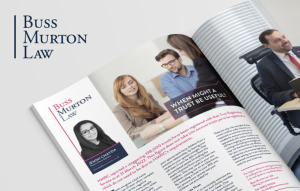1st August 2023
When might a trust be useful?

HMRC reported a staggering 198,000 trusts have been registered with their Trust Registration Service as at 31 March 2022. This figure does not take into account trusts yet to be registered or which do not need to be due to HMRC’s requirements.
Trusts are given a bad name because of their often-complex nature and the negative connotations many people associate with them. However, when used correctly, they are valuable mechanisms to provide for loved ones.
Example One
For individuals who need to provide for a family member with Special Educational Needs and Disabilities (SEND), leaving money outright to them may not be wise for a number of reasons including the risk of them being taken advantage of as a result of their vulnerability. A trust will ensure that your money is used to provide for your loved one in the way you intended.
Example Two
Once a person inherits an asset (including money) outright, it is their decision as to who they leave the asset to on their death (or during their lifetime) which may not be in line with your wishes. For example, if you and your spouse each have children from a previous relationship, by leaving your estate to your spouse outright, they will then in turn be able to leave the accumulated estate (including the assets inherited from you) to their own children. This may result in your own children missing out on an inheritance. By including a trust in your Will, you can ensure your spouse and your children are provided for.
Example Three
It is difficult to accurately estimate the amount of money each family member will require after your death. One member may require more financial assistance than another at different times. A trust will allow you to inject flexibility in relation to the distribution of your estate. Instead of leaving sums of money outright to loved ones, you can leave your estate to a trust which is managed by trustees. If a loved one requires money, it will be at the trustees’ discretion thereby ensuring the trust fund is protected and utilised in the way you intended.
These are only a few examples of when a trust could be useful. However, it is important to note that trusts are not suitable for everyone and must be approached with caution. Certain trusts will have ongoing costs associated with running it (including tax charges) and may not therefore be cost-effective for your circumstances. Failure to seek appropriate and accurate legal advice before setting up a trust could result in unwanted consequences and increased costs for your loved ones.
For more advice on when a trust might be useful for you, contact our private client team on 01892 510 222.